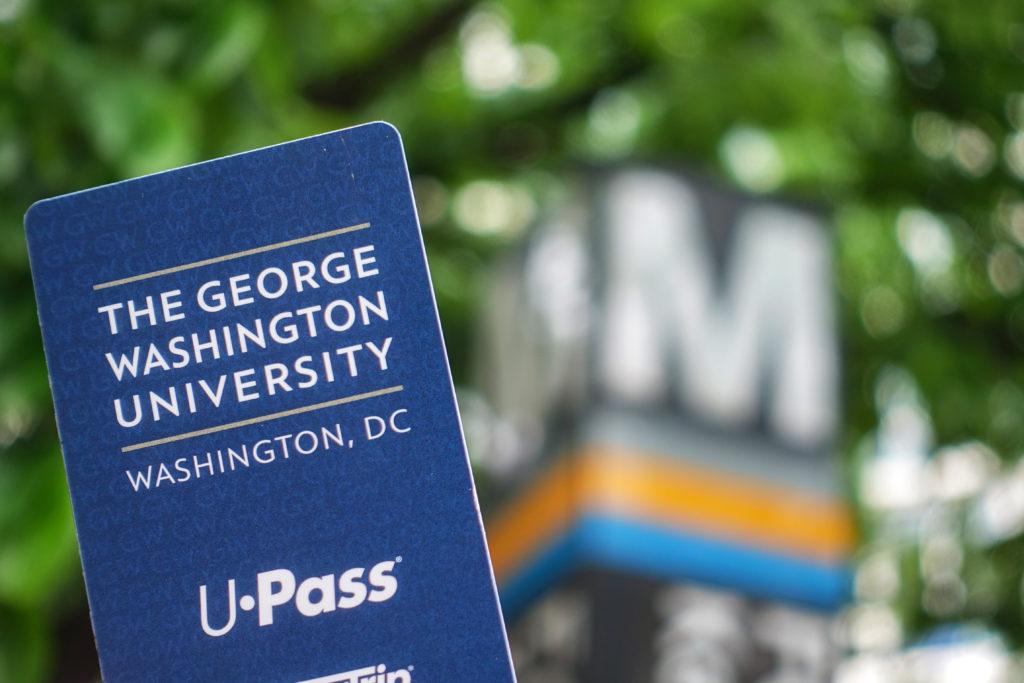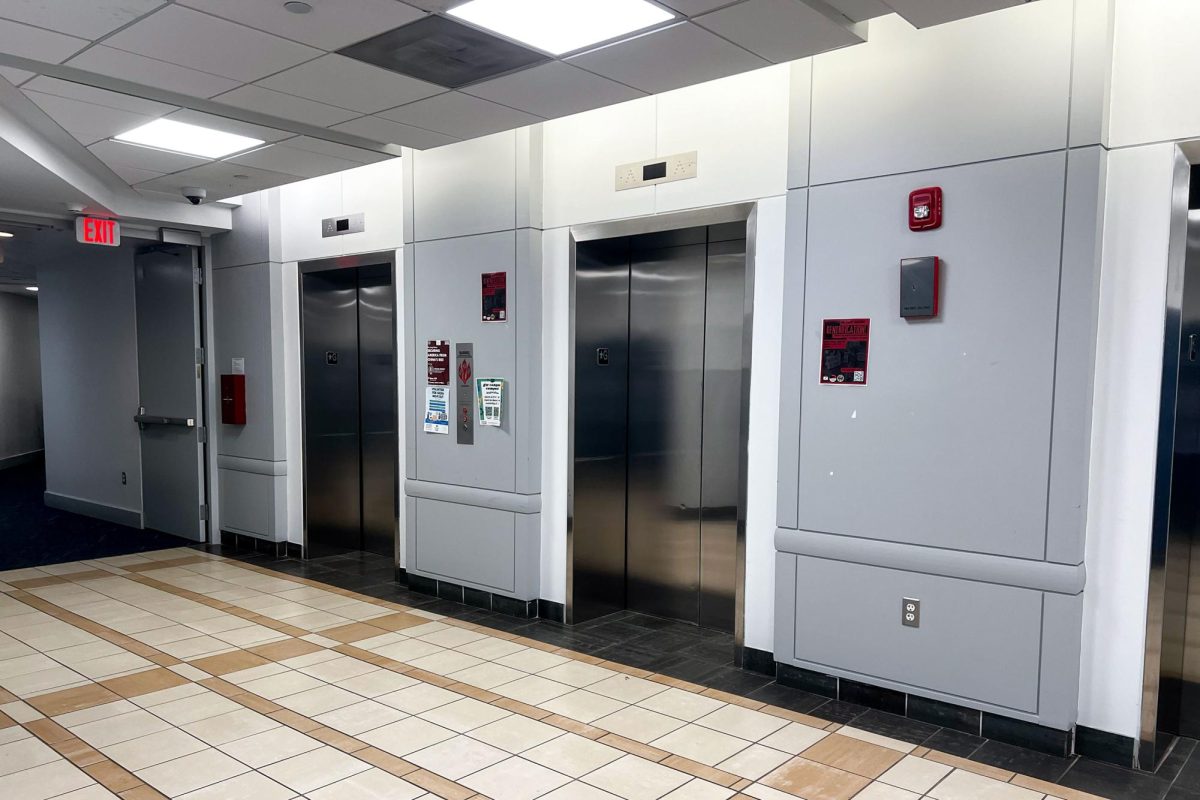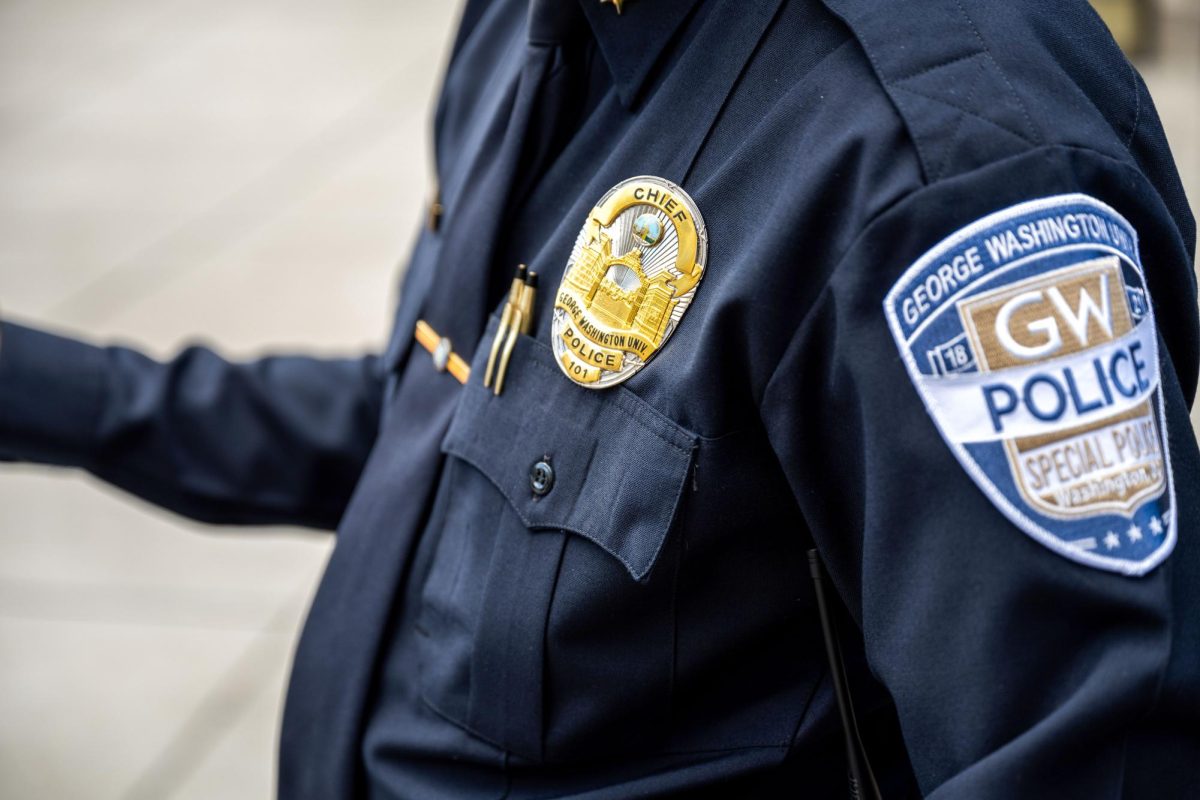As GW concludes its first full semester of the long-sought-after U-Pass program, students have taken more than 683,500 trips with their unlimited Metro access as of early May.
University spokesperson Tim Pierce said students have used U-Pass for transportation to internships, groceries and recreation, and officials plan to continue distributing U-Pass cards in the fall semester. Students living on the Foggy Bottom Campus said U-Pass connected them to attractions and neighborhoods in the District that were previously difficult to access due to transportation costs, and commuter students said the program helped them get to classes for significantly less money.
“With access to unlimited rides during the semester, students can explore anywhere in the city and are presented with opportunities they did not previously have,” Pierce said.
U-Pass cards picked up in January will expire on May 15, according to GW’s website. When they arrive on campus in the fall, students will have to pick up a new U-Pass card that will function until the end of the 2022-23 school year.
The University started handing out U-Pass cards in January, about two months after officials announced they would enroll undergraduate and graduate students in the program after years of student advocacy.
Before announcing the partnership in November of last year, officials had discussed implementing the program with student leaders and WMATA in early 2016. But after nearly three-quarters of students voted in support of implementing U-Pass in a referendum in March 2019, administrators declined to enroll, saying the cost would not be “feasible or fair” for students.
Once approved, the program came at the cost of a $100 fee – mandatory for undergraduate students and optional for graduates – that allows students to access unlimited Metrorail and Metrobus rides during the school year. Pierce declined to say how many students received U-Pass cards since their introduction and how many graduate students opted out of the program.
Former Student Association Vice President Kate Carpenter, who was in office when the program was announced, said the U-Pass program has been “wildly successful” since its implementation and has received positive student feedback and ridership numbers. Carpenter said she was “extremely blessed” for GW’s help instituting the program that has benefited students like commuters and graduates, and students should be encouraged to use it to explore more of the District with increased affordable access.
“It’s a great program that has been able to benefit a lot of students, both graduate students, undergraduate students, commuter students, transfer students, you name it,” Carpenter said. “Many students are able to benefit off this program.”
Carpenter said she personally uses U-Pass to help her travel to reach clients for her photography business, “capturingcarp,” and she would not be able to run the business as efficiently without U-Pass. She said she’s thankful for former students’ advocacy, like referendums or past SA election bids, to push officials to provide U-Pass.
“A lot of my friends have work across the city and they’re able to utilize their U-Pass for that,” Carpenter said. “So I would say it’s been a wonderful program.”
Ten students said the U-Pass program allowed them to commute to classes and explore D.C. without worrying about transportation costs.
Avryl Abunal, a freshman majoring in criminal justice, said she uses U-Pass twice per day four times a week to commute to classes from Springfield, Virginia – nine Metrorail stops away from Foggy Bottom – and visit cafes and museums in her free time. She said she would’ve had to spend about $200 a month to commute on the Metro without U-Pass.
“The U-Pass is truly a lifesaver for commuter students,” Abunal said. “I know for many commuters, they truly felt heard for once by GW, and I can only hope they continue to make such amazing improvements.”
Ian Ching, a junior majoring in international affairs, said he used U-Pass once every three weeks this semester, so it would have been cheaper for him to pay the usual Metro fee upfront compared to the tuition fee. But he said the range of options provided through U-Pass, which covers Metrobus in addition to Metrorail, allowed him to have more options when coming home late at night.
Ching said the program could be more useful next year because he will live off campus and might use the Metro more often. He said the University should continue offering the program moving forward because students who rely on public transportation more regularly save money through U-Pass.
“It’s definitely worth it to keep because next semester, I live off campus so it’s definitely a net positive for me next year,” Ching said. “It just wasn’t necessarily too helpful this year.”
Sophie Lindberg, a freshman majoring in peace studies, said she uses U-Pass nearly once a week to go to neighborhoods that she otherwise would not have visited like Georgetown and DuPont Circle, which can be accessed on Metrobus. She said before the program was introduced, she usually stayed in Foggy Bottom because the high costs of transportation prevented her from visiting other parts of the District.
A roundtrip Metrorail trip from the Foggy Bottom Metro station to the Capitol South station, near the site of many Hillternships, costs around $4.50 during peak hours on weekdays. The same trip would cost from $2.00 to $4.25 on Metrobus.
“U-Pass enriched my GW experience because I’m exploring more parts of D.C. that were otherwise way too expensive to go to with the Metro,” Lindberg said.







